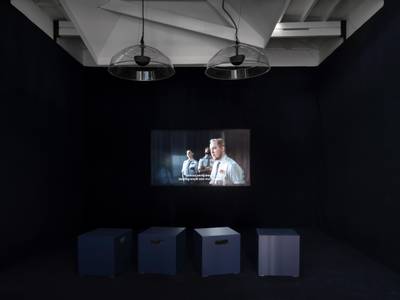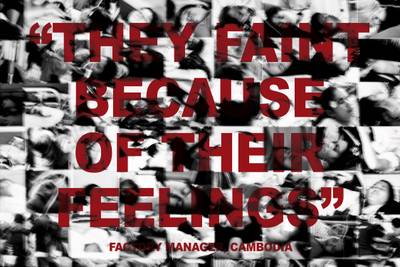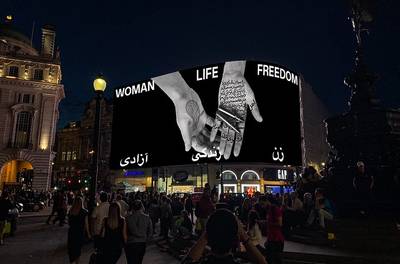

Shia Conlon is a writer and artist whose work has been centered around marginalized voices and growing up in the landscape of working-class Catholic Ireland. His research is focused on non-linear time, queer representation, archives, language, and memory.
Hello World | Directed by Kenneth Elvebakk | Duration: 88 minutes | Language: Norwegian
Hello World (2021) is a Norwegian documentary feature directed by Kenneth Elvebakk. The film follows multiple young people growing up queer and gender non-conforming in Norway. Watching these teenagers explore joy and power, I was surprised at the dominant emotion it brought up in me, which was grief. In my own practice, I have often circled around the question of how to regain autonomy and happiness after long years of trauma. I have thought about representation, and how important it is to see someone that you might want to be. I have thought about community, and how important it is to feel supported, that someone has your back. I have thought about play, how vital it is to keep that alive, especially in a cynical art world. In previous writings, I concluded that the way forward in queer and trans representation is not to center our trauma but to allow us the narrative ease and nuance of cis-het people.
Why then, could I not enter fully into the joy of these teenagers? Why did I feel such a sense of sadness? I asked myself throughout the movie.
I noticed the moments where I cried were those that dealt with the working-class protagonist, Joachim. His fight for joy was so determined and aggressive, and often minimized by his parent. In a particularly painful scene, Joachim is doing his makeup and sharing his dreams of becoming a make-up artist with his mother. She counters his hopes with attacks. How will you do that? Do you really think it’s going to work? It’s going to be hard for you.
In the scene, the mother’s face is fearful, searching for something in this conversation, reassurance maybe? Unable to regulate herself, she projects all her fears onto her child. Joachim looks defeated and angry. He tells her he’s going to try no matter what, because how else would he know it would work? This way of being challenged feels familiar to me. I often wonder if it is a specific language that working-class families speak. When the possibilities of the world feel so limited through money and social power, are we even allowed to dream? Knowing how the world can derail dreams, the parents of these families assume the role of society before their children ever leave the home. They channel their own anxieties about our futures into these questions. Their fears about having a queer child. Will they be safe? Can they really survive like this? They pull apart our dreams before the world can, thinking it might teach us some lessons.
Behind these actions, somewhere, is care, but as bell hooks says, “Care is a dimension of love, but simply giving care does not mean we are loving… A lack of sustained love does not mean the absence of care, affection, or pleasure….the bonds in my family have been so full of care that it would be quite easy to overlook the ongoing emotional dysfunction.”1
Reading these differentiations between love and care in “All About Love” was groundbreaking for me. As hooks says, learning about these might lead a lot of people to note an absence of love in their childhoods. Admitting this, for me, was difficult, for personal reasons but also because of the way in which the parent-child relationship is revered in our society. Challenging these bonds feels like a Sisyphean task, especially when so many of us are dealing with parents of the Boomer generation.
My grief began to make sense the more the movie unfolded. There was envy mixed in too. I noticed these emotions at their strongest when the scenes with Runa were on screen. Runa had two parents who were very present. They fought their school when they wanted to come out, writing letters to make sure their child had the correct treatment and safe conditions to live openly. They cried alongside Runa, they were actively involved, they were committed to the task of understanding their child. Runa’s eyes were bright and alive; Joachim’s were full of defeat and insecurity. In a scene where Runa’s family throws a pride flag over their Oslo apartment’s balcony, I felt the chasm between that world and the world of Joachim’s, and between mine, and many other queers. Where we live with difficult parents, and where we try to love through immense difficulty. In limbo.
Many narratives centered on queer children and their parents are very black and white. We have the parents who kick you out, call you slurs, think you’re an abomination. The disowning narrative. Then, on the other hand, we have the ecstatic parents, who protest alongside you at pride, who read articles about your community, who want to learn. So many people I know aren’t in either of these worlds, they remain in this in-between.
With the parents who say “as long as you’re happy”, and mean it, but still, misgender you over dinner. The parents who see you changing, but don’t ask any questions, for fear of what that change means. The parents who say your needs are too difficult, they can’t keep up with your new definitions. The parents who just don’t seem all that curious about you or your life. The parents who try, but still mess up. The parents who ask for reassurance on their parenting, amongst a conversation about their abuse.
Living in this grey area can be exhausting. For those of us who want to have a relationship with our parents, loving through this difficulty requires patience and extreme perseverance. It sometimes requires work that lacks compromise; it requires having your more sensitive buttons pressed and your deepest triggers activated. It also, for me, has required me to see my parents as humans with their own trauma, pain, and struggle and to try and understand the language of care they are trying to speak with me. Existing here in this constant negotiation of what battles to fight, and what to let go of, leaves little energy for me to dream. I often wonder if they will ever understand me the way I want them to and if it’s worth the extreme vulnerability of trying?
Along the way, I’ve also learned to take care of that inner child that grieves at these realizations, to give them all the space and time they need, to allow them their many shifting moods, and to not question them out of their emotions. Rather, just let them be, in all of their complexity, and help them answer the questions when they come.







